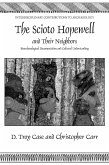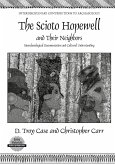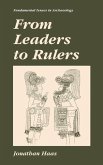Anthropological archaeology and other disciplines concerned with the formation of early complex societies are undergoing a theoretical shift stemming from the realization that the social evolution of complex societies was more varied and complex than imagined.
Given the need for new directions in theory, the book proposes that anthropologists look to political science, especially the rational choice theory of collective action. Collective action theorists propose that state formation results from the strategic behavior of rational and self-interested actors who make up the polity, including a political elite and those outside the official structure of the state. The theory proposes that the form taken by a state will depend on the "bargaining power", of rulers and taxpayers. Where taxpayers have more resources with which to bargain, it is predicted that rulers will concede benefits to taxpayers and will agree to restrictions on their power.
The authors subjectcollective action theory to a methodologically rigorous evaluation using systematic cross-cultural analysis based on a world-wide sample of societies. The results presented here indicate strong support for most elements of the theory, but some results, in particular those pertaining to the control of ruler behavior, suggest the possibility that there are contexts in which collective action may play out in ways not anticipated by the theory.
While this type of theoretical modeling is commonly seen in political science research, this volume is unique in its approach from an anthropological and archaeological viewpoint.
Given the need for new directions in theory, the book proposes that anthropologists look to political science, especially the rational choice theory of collective action. Collective action theorists propose that state formation results from the strategic behavior of rational and self-interested actors who make up the polity, including a political elite and those outside the official structure of the state. The theory proposes that the form taken by a state will depend on the "bargaining power", of rulers and taxpayers. Where taxpayers have more resources with which to bargain, it is predicted that rulers will concede benefits to taxpayers and will agree to restrictions on their power.
The authors subjectcollective action theory to a methodologically rigorous evaluation using systematic cross-cultural analysis based on a world-wide sample of societies. The results presented here indicate strong support for most elements of the theory, but some results, in particular those pertaining to the control of ruler behavior, suggest the possibility that there are contexts in which collective action may play out in ways not anticipated by the theory.
While this type of theoretical modeling is commonly seen in political science research, this volume is unique in its approach from an anthropological and archaeological viewpoint.








